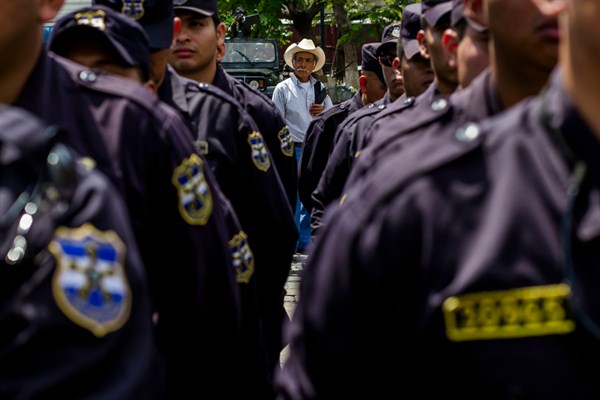With the world’s three highest homicide rates since 2010, the Northern Triangle of Central America—the countries of Guatemala, El Salvador and Honduras—have become the fulcrum of regional insecurity. In addition to levels of violence surpassing those of countries at war, the region is a base for transnational drug cartels, the virulent youth gangs known as “maras,” and criminality ranging from mass deforestation to money laundering.
The reverberations of this multifaced security crisis, particularly the waves of underage migrants fleeing north to the United States, has finally focused attention enough to forge a concerted response. In February 2015, the Obama administration asked Congress for $750 million of aid for Central America to bolster security, weed out corruption, reform criminal justice, and attract international investment.
Using legal instruments such as the Foreign Narcotics Kingpin Designation Act, the U.S. has targeted longstanding organized crime networks, such as the Maradiaga family of Honduras, whose businesses were a drug-trafficking front. In 2015, U.S. authorities in Miami arrested Yankel Rosenthal, a former government minister from one of the country’s most powerful families.

